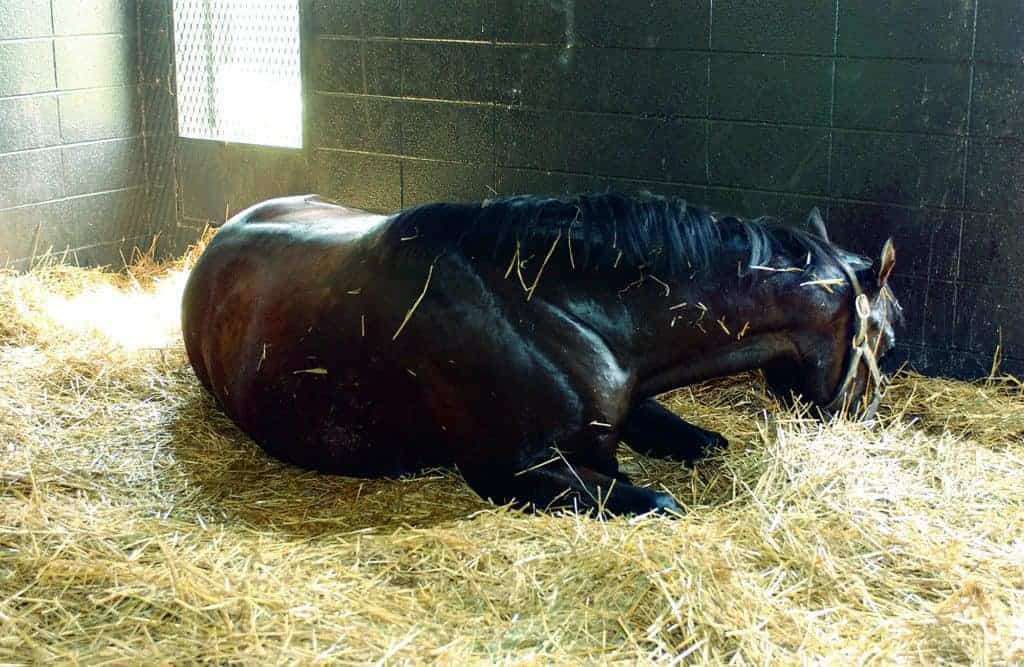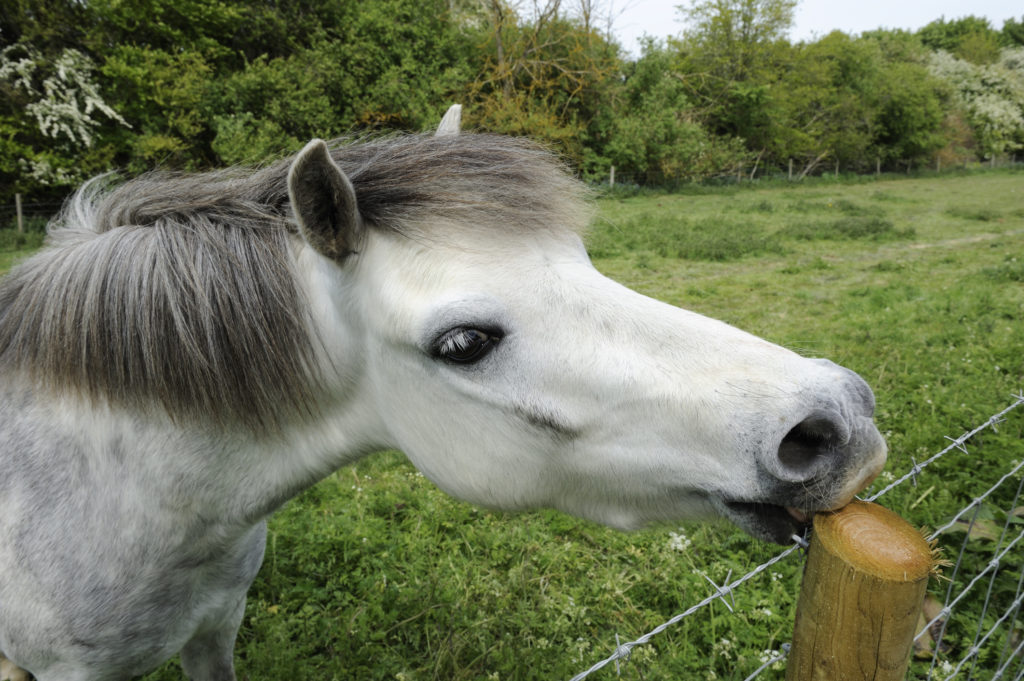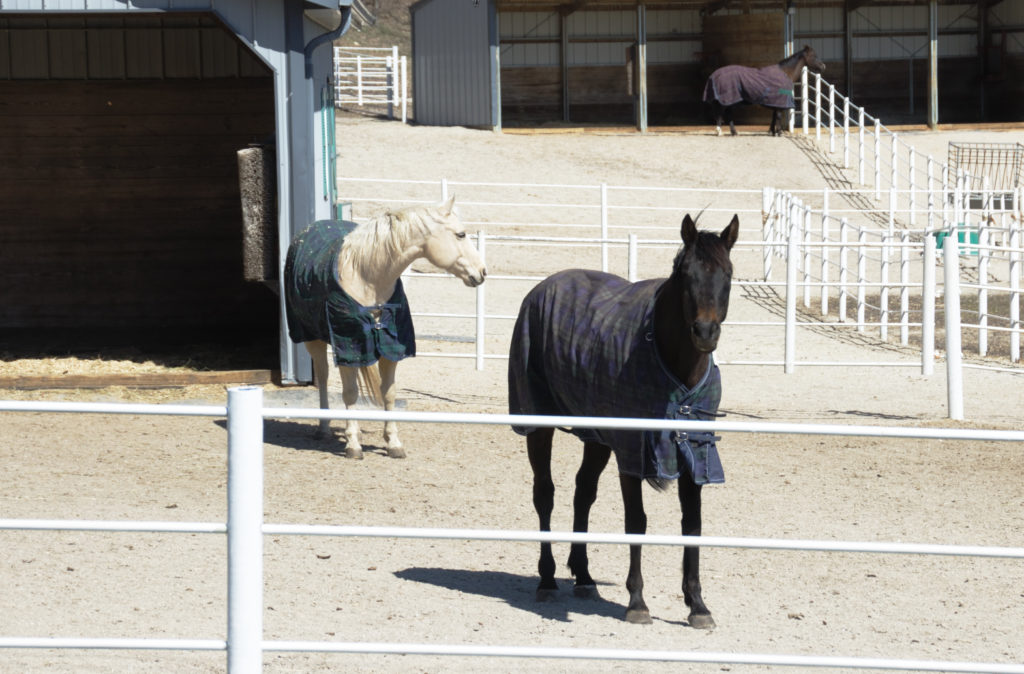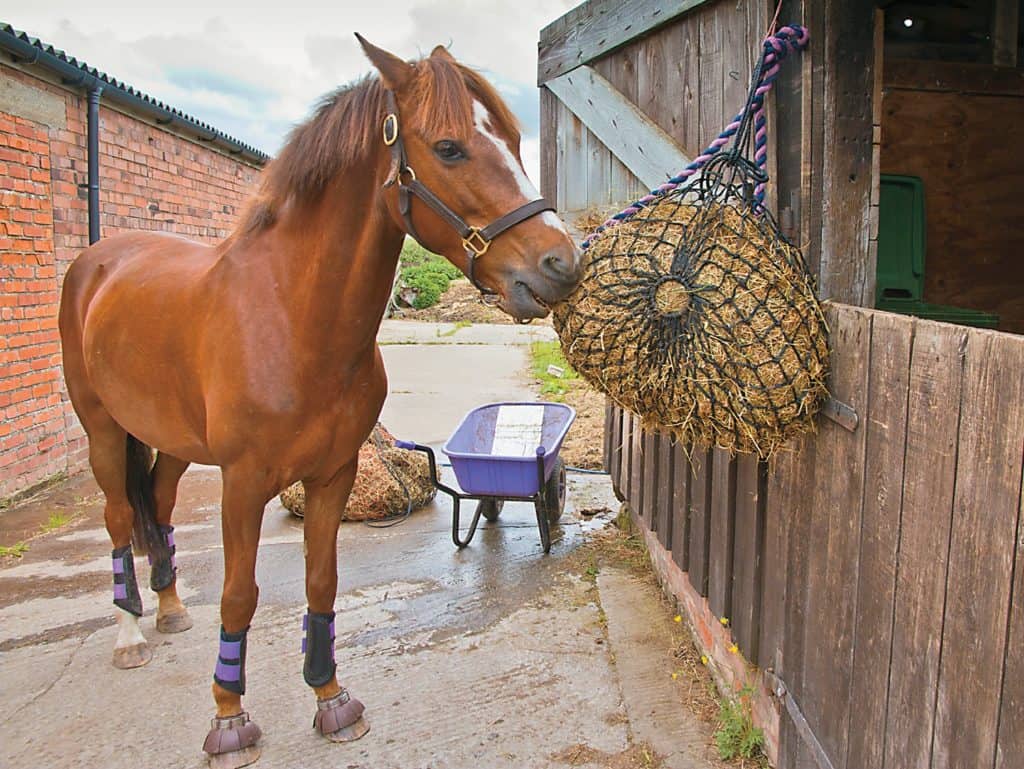
The Equine Gut Microbiome
Carolyn Arnold, DVM, Dipl. ACVS, of Texas A&M University offers a better understanding of the gut microbiome’s role in colic and colitis.

Carolyn Arnold, DVM, Dipl. ACVS, of Texas A&M University offers a better understanding of the gut microbiome’s role in colic and colitis.

In the past 30 years, researchers have made great strides in understanding gastric ulcers. Those findings and ones yet to be made can help improve horse health and welfare now and into the future.

Dr. Stephanie Valberg explains how five major advancements in veterinary technology have helped her and others learn more about and discover new equine muscle disorders.

While wire ingestion was once considered a death sentence, researchers recently found that surgery can save some affected horses, especially if the foreign body is identified and treated early.

Vitamin E deficiencies can cause neurologic and other health problems in horses. As such, at-risk horses—from breeding stock and foals to equine athletes and pasture pets—might benefit from supplementation.

Are you and your horses heading south for the winter? Prepare in advance to keep your equine charges healthy during and after transport.

How to unravel the reason behind your horse’s head-scratching weight loss.

Western Milling has agreed to pay $2.4 million in damages to the owners of several horses that reportedly became ill or died after consuming monensin-contaminated horse feed.

The FDA warned Gilman Co-Op Creamery and Farmers/Ranchers Cooperative Association of Ainsworth about monensin contamination in horse feed they produced. Monensin is an animal drug approved for use in cattle, swine, and poultry that is highly toxic and potentially lethal to horses, even at relatively low levels.

Veterinary technicians make important contributions before, during, and after colic surgery. Here’s how they help veterinarians and surgeons during these potentially life-saving procedures.

Equine researchers have begun studying the concept of whole-body inflammation because of its links to a variety of health problems, including “leaky gut syndrome”; musculoskeletal injury risk; and equine metabolic syndrome, insulin resistance, and laminitis.

Our nutritionist looks at whether all-pellet diets are good for horses.

Common feeding practices could be causing your horse’s stomach acid levels to rise.

Researchers determined that the diet and exercise recommendations veterinarians make for horses with PSSM1 can help improve, but likely won’t eliminate, clinical signs of PSSM2 in Warmbloods.

Cobalt is required in very small amounts in the equine diet.
The U.S. Food and Drug Administration (FDA) is investigating the deaths of six horses in Minnesota allegedly due to horse feed contaminated with monensin.
Stay on top of the most recent Horse Health news with
"*" indicates required fields